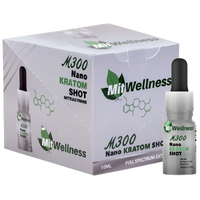 The total alkaloid concentration in kratom leaves ranges from 0.5–1.5 %. The Kratom chemical composition in commercial products depends on several factors, such as the specific type, age of the plant, the setting, and the harvesting period. The chemical composition of active alkaloids in kratom leaves, or Mitragyna Speciosa include mitragynine (MG), 7-hydroxymitragynine (HMG), speciociliatine (SC), speciogynine (SG) and paynantheine (P).
The total alkaloid concentration in kratom leaves ranges from 0.5–1.5 %. The Kratom chemical composition in commercial products depends on several factors, such as the specific type, age of the plant, the setting, and the harvesting period. The chemical composition of active alkaloids in kratom leaves, or Mitragyna Speciosa include mitragynine (MG), 7-hydroxymitragynine (HMG), speciociliatine (SC), speciogynine (SG) and paynantheine (P).
What is an Alkaloid?
An alkaloid belongs to a class of naturally occurring compounds and is part of organic chemistry. The term was coined by a German chemist and is used to describe organic substances and secondary metabolites that nitrogen-containing plants naturally produce. Nature is full of naturally occurring organic compounds like carbohydrates, lipids, anthocyanins, flavonoids, proteins, amino acids, and steroids. Alkaloids are one such class that happens to be very special. Why you may ask? Because they come from amino acids and have a very essential role to play. This substance has physiological impacts on individuals. For instance, coffee can be a mild stimulant whereas cocaine can cause intoxication. For thousands of years, people have used plant alkaloids (either as toxins or medicine). Alkaloid production is done by all living organisms, but many of them have been isolated from plants to get the crude extracts out using isolation techniques and purification techniques. Few kinds of alkaloids are produced by most plants, and it is unclear how they serve plants. Researchers theorize that they could be associated with the formation of seeds. Numerous alkaloids have applications in human medicine, irrespective of their function in plants.
Types of Alkaloids
Effects of Alkaloids
There are different effects of alkaloids. They serve a wide range of applications and uses in human life. Plant-based alkaloids have a rich history of use in medicine. Since the 19th century, morphine and other opium-based analgesics have been used to treat pain. Communities in the Amazon have been using the antimalarial medication quinine as a herbal medicine for more than 400 years. There are numerous applications for alkaloids encompassing anything from stimulants like nicotine or caffeine to toxins like coniine to drugs like quinine. It should be noted that several alkaloids that are utilized as alternative medicines can also be poisonous or substances of abuse.
The biological activity of Alkaloids
The biological activity of alkaloids is diverse. When it comes to plants, alkaloids protect them from predators. They also help in the growth regulation of plants. In nature, alkaloids also help to decrease bacterial and fungal infestation to keep medicinal plants safe. On the other hand, when it comes to human beings, alkaloids tend to work much differently. They can have therapeutic potential and have cardioprotective, anti-inflammatory, and anesthetic effects. They also have enzymatic activity, Antioxidant Activity, Cytotoxic Activity, Pharmacological Activity, Antiviral Activity, and so on.
Alkaloids in food and drinks
Unsurprisingly, alkaloids in food and drinks are quite common. You can find alkaloids content in a vast majority of functional foods and beverages. Some examples of alkaloid bases in foods are coffee seeds, cacao seeds, tea leaves, tomatoes, and potatoes. Caffeine is a very common alkaloid that is used in various beverages including soft drinks.
Alkaloid FAQS
Below we have discussed a few alkaloid FAQs.
What organ do alkaloids affect?
Alkaloids affect a vast variety of organs. These compounds are present in plants and animals and as a result, human beings tend to ingest them. But, they do not harm our organs unless the alkaloids we are consuming are toxic. Sometimes, the alkaloids we are consuming interfere with the neurotransmitter receptors of our brain, especially due to the structural similarity. They also interfere with ion channels and this results in neuronal signal transduction. Other than this, toxic alkaloids that we consume can affect numerous other organs such as the liver, kidneys, gastrointestinal tract, reproductive organs, and lastly, heart and circulation.
What does alkaloids do to the body?
Alkaloids can be both good and bad for the body. On one hand, they are good since they can be used as diet ingredients, pharmaceuticals, supplements, and other variety of things. All this help to make human life better in every possible way. However, on the other hand, toxic alkaloids can harm our bodies too. For instance, they can cause disturbances in the central nervous system, reproduction, immune system, and digestive processes. Thus, they must be cautiously used so as to avoid any such problems.
Are alkaloids harmful?
No, alkaloids are not particularly harmful. Most of the alkaloids found in foods and drinks are generally safe. However, several plants have poisonous alkaloids that could be harmful to people. Even though there are many poisonous plants, deadly plant poisonings are rather uncommon. There are often geographical differences in the frequency of intoxication and the species involved.
For more information on the effects of Alkaloids in Kratom contact MitWellness.







